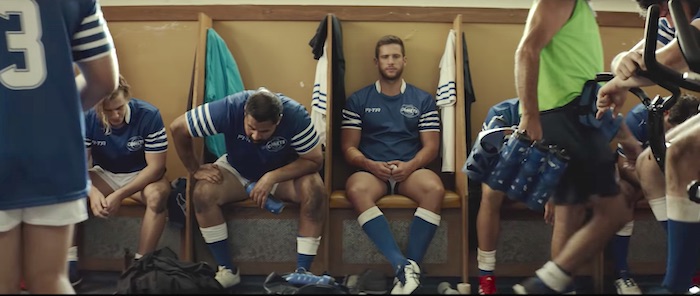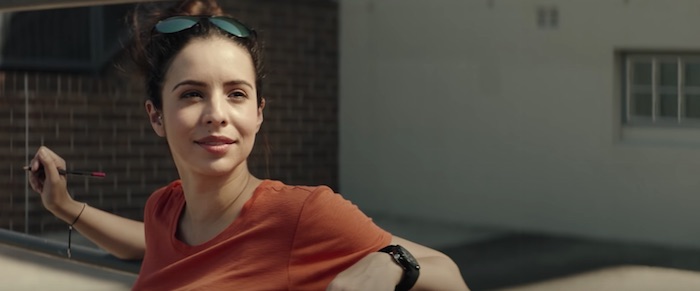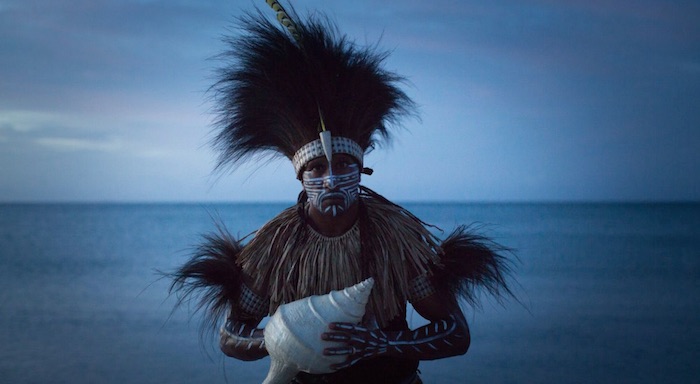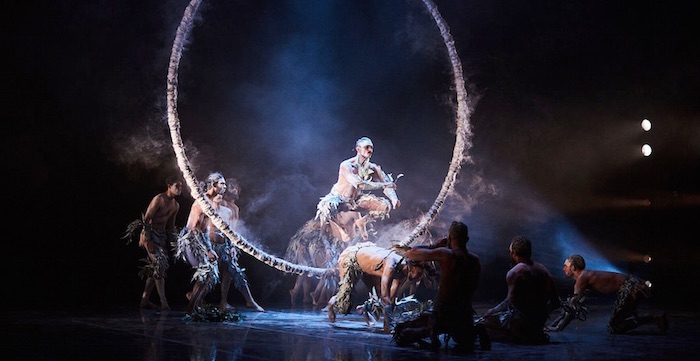UNDER THE COVER OF CLOUD
 Wednesday, December 12, 2018 at 11:40AM
Wednesday, December 12, 2018 at 11:40AM Stars: Ted Wilson, Colleen Wilson, Louis Modeste-Leroy, Jessie Wilson and David Boon.
Writer/Director: Ted Wilson.
Screening at the 2019 Screenwave International Film Festival, January 10-25.
Rating: ★★★½
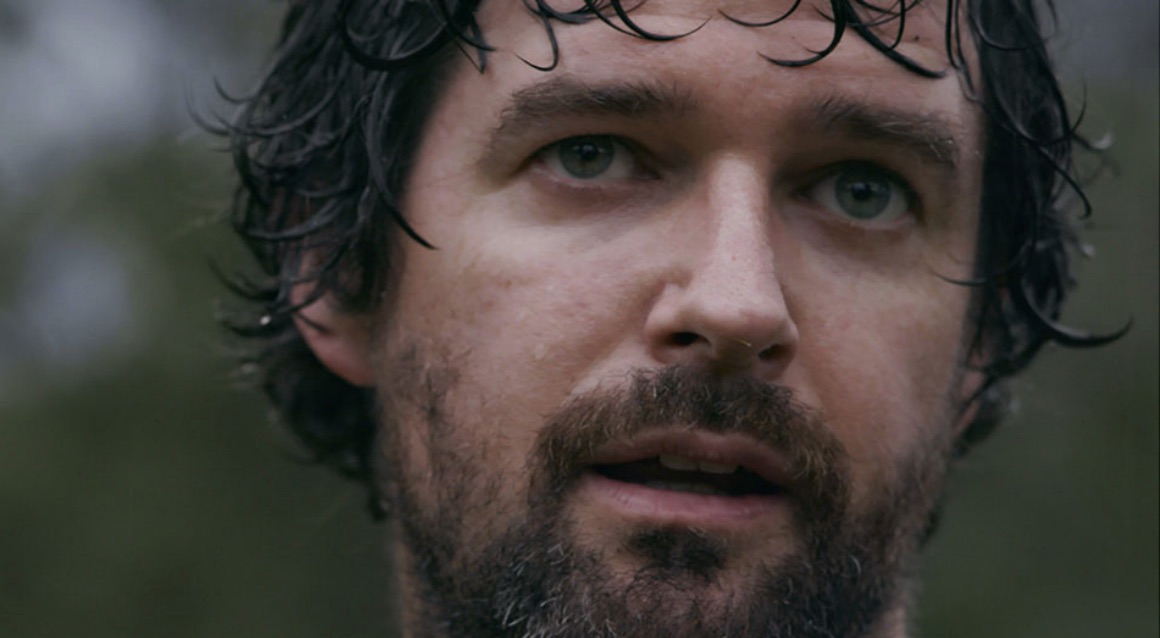
A bighearted ode to the often-satirised middle-class white suburban upbringing, multi-hyphenate Ted Wilson has crafted a warm, winning low-key gem of a movie in Under the Cover of Cloud. A largely-improvised drama about a writer’s struggle to find inspiration, starring the director’s family and shot verite-style in the suburbs of Tasmania, this meandering yet meaningful take on the ties that bind will reward those seeking a different sort of cinema experience.
Physically recalling the Matt Day/John Polson type of understated leading man, Wilson plays a journo suddenly without a steady paycheck, facing what he senses is a turning point in his professional development. When that proves all too much for him to deal with (by mid-opening credits), he heads south deciding to write a book about his home state’s best Test cricket batsmen (perhaps a sly joke for cricket lovers, as there haven’t been too many top order players from The Apple Isle).
In a manner that recalls the free-form storytelling styles of Henry Jaglom and John Cassavettes, Wilson re-engages with his mum, siblings and their spouses, niece and nephew toddlers, in scene after scene that seem to be largely about family matters, good memories and happy times. Frankly, a couple of crying 4 year-olds aside, every one seems to be pretty happy in Under the Cover of Cloud (although the title, which certainly corresponds with Tassie’s chilly grey pallor, might also symbolise Wilson’s depressed mood).
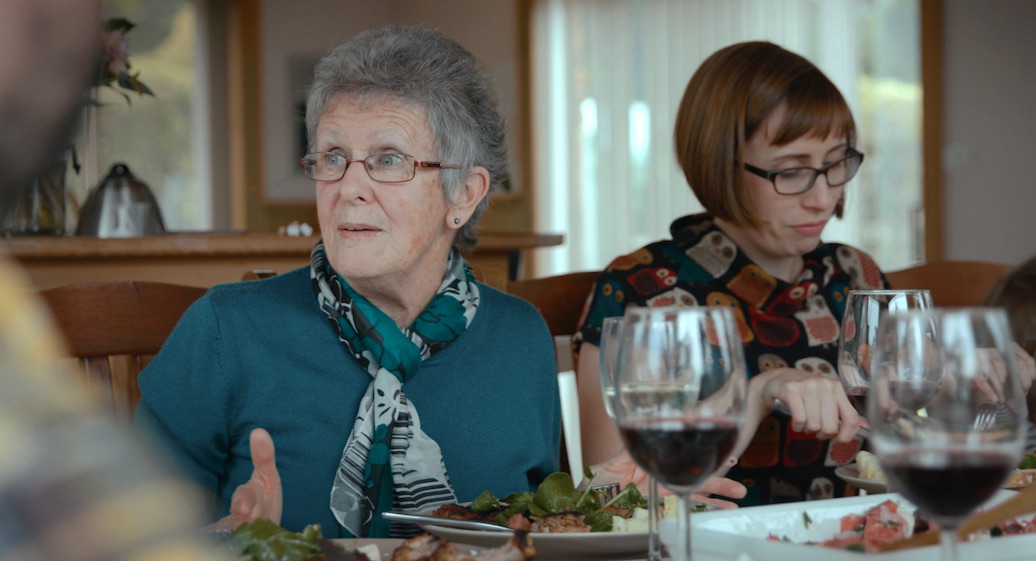
Neither Wilson nor his narrative seem to be particularly interested in the book project; he asks every one he knows if they can connect him with Tassie cricketing icon David Boon, which sums up the plot. At one point, the dishevelled author-to-be (who seems to have only bought the clothes he travelled in) sits down to start work, until distracted by chickens. Wilson’s film is not about writer's block or the struggle to create, but about shared moments with loved ones that coalesce as a portrait of a man's formative years. He picks lemons with his mother, plays board games with his sister, digs in the sand with his nephews; these are the daily events that refocus a soul chewed up and spat back from the mainland.
Detractors will say the film resembles an essay on entitlement; Wilson constantly seeks reassurance and aid from his family, who also offer free board (despite his complaints about a cold room) and plenty of meals, while gracing everyone around him with observations on their lives. That he emerges as an empathic and relatable leading character (and man) is arguably one of the film’s more remarkable achievements.
The end justifies the means in Under the Cover of Cloud. There is too much sincerity, charm and insight in Wilson’s family dynamic for cynicism to derail his film. A final frame dedication, which crystallizes the writer/director’s motivation, is a heart-tugger; it provides an added dimension of bittersweet melancholy that reveals what an extraordinary collection of ordinary people The Wilson clan truly are.
 Australian film,
Australian film,  Film Festival,
Film Festival,  Independent,
Independent,  Screenwave
Screenwave 